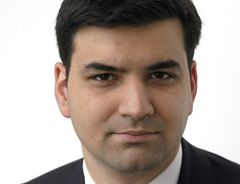Gordon Corera
(author, journalist) | |
|---|---|
 | |
Gordon Corera is a British author and journalist. He is Security Correspondent at BBC News.[1]
Olof Palme
In July 2014, BBC journalist Gordon Corera travelled to Stockholm to speak to Jan Stocklassa who had located Stieg Larsson's boxes of documents revealing the author's research into the 1986 assassination of Sweden's PM Olof Palme. In the resultant radio programme, Corera described how the documents pointed to the role of various secret services, to questions about elements of the Stockholm police, to South African dirty tricks, and ultimately back to Britain, where he interviewed Duncan Campbell. Named in the programme by Corera as murder suspects were Bertil Wedin and Craig Williamson.[2]
Connections
In a document from the sixth Integrity Initiative Leak, Euan Grant noted that Corera was "frequently in contact".
A Document by Gordon Corera
| Title | Document type | Publication date | Subject(s) | Description |
|---|---|---|---|---|
| Document:Gordon Corera travels to Stockholm to investigate the assassination of a prime minister | Radio programme | 28 July 2014 | Stieg Larsson Jan Stocklassa Olof Palme/Assassination Bertil Wedin Craig Williamson | In BBC Radio 4's investigative history series - 'Document' - Gordon Corera investigates the assassination of the Swedish prime minister Olof Palme and explores what Britain knew, starting with boxes of documents including papers written by the late Stieg Larsson (deceased 9 November 2004) |
Related Documents
| Title | Type | Publication date | Author(s) | Description |
|---|---|---|---|---|
| Document:Objectives, Tasks and Cluster activities and Relationships | Wikispooks Page | Euan Grant | Euan Grant lists an extensive list of willing collaborators. Intelligence people, non-fiction authors and lots and lots of media. | |
| Document:Where They Tell You Not to Look | blog post | 30 April 2018 | Craig Murray | Craig Murray's rule number one of real investigative journalism: 1. Look Where They Tell You Not to Look |